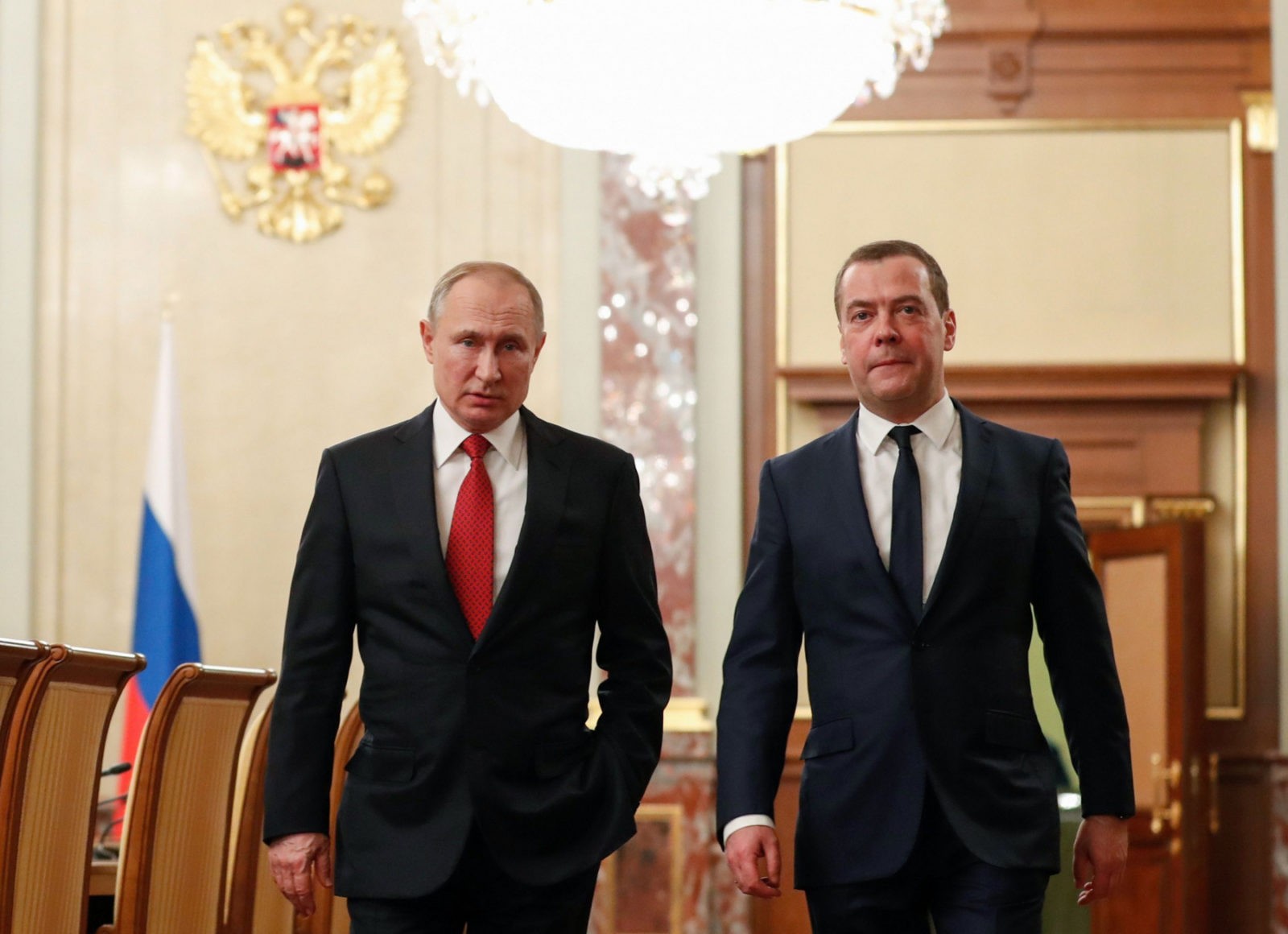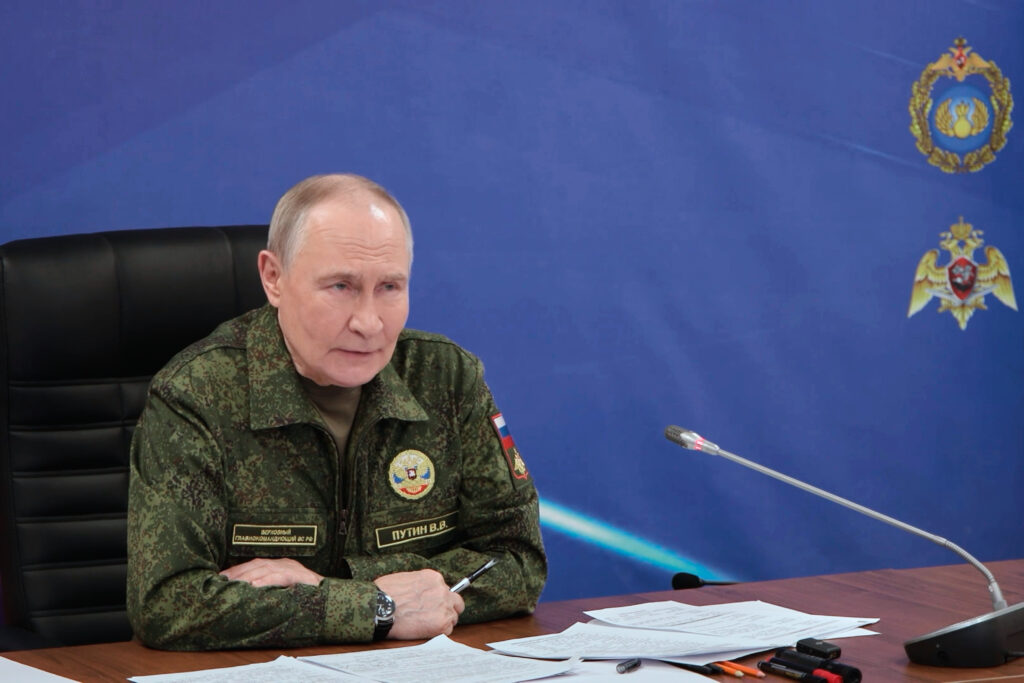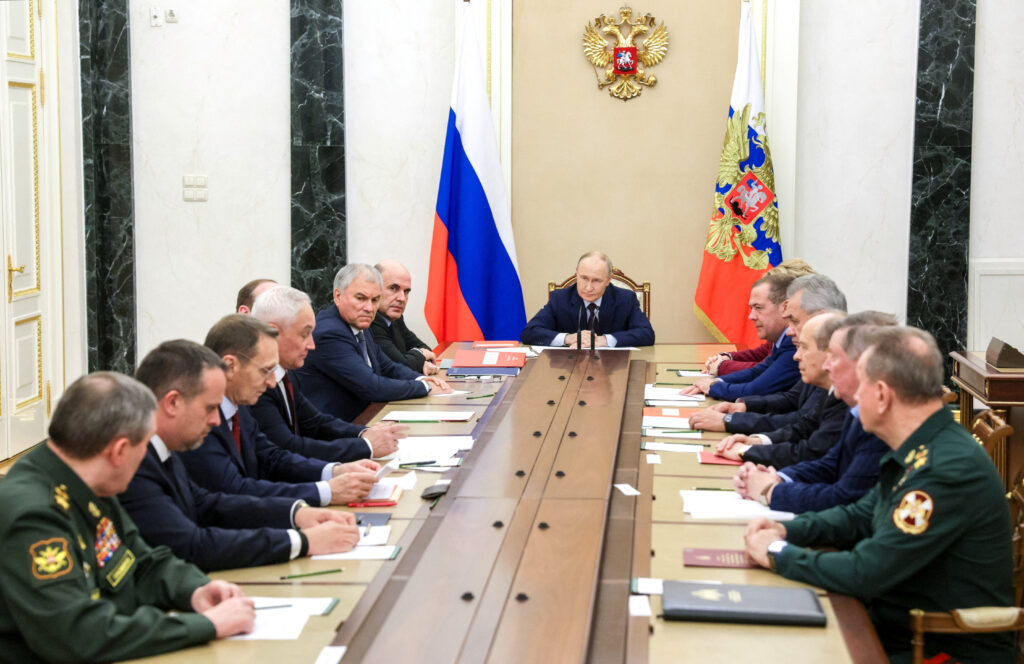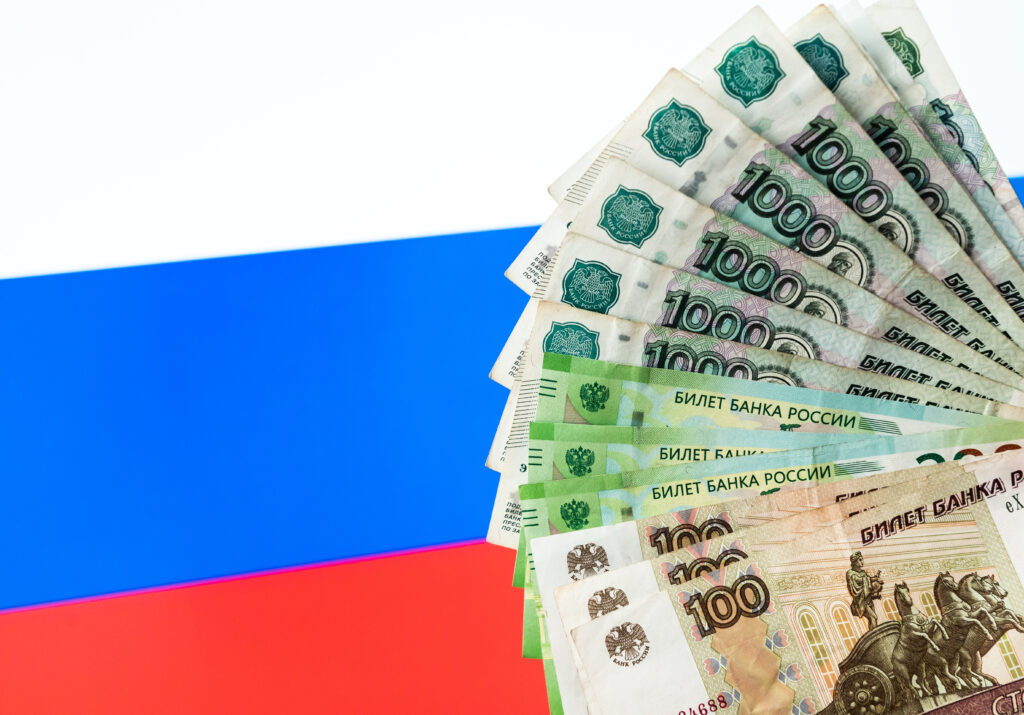On January 15, Vladimir Putin announced his plans to strengthen Russia’s political system. More precisely, to strengthen the regime of power that he created. He proposed several amendments to the Constitution, and some of them affect its very foundations. To accept such amendments means basically adopting a new Constitution. This requires the convening of the Constitutional Assembly. But it is impossible to assemble it, as the law on the procedure for its convocation has not been adopted.
What’s on the menu
However, there is no doubt that Vladimir Putin’s legal department have thought about how to circumvent this. A constitutional lawyer, Alexei Elayev, shows here how it will be done. Amendments can be made to those articles of the Constitution which are not subject to the ban on amendments.
The first amendment is freeing the hands of the Constitutional Court, which safely support court decisions that ignore international law in cases where it is beneficial to the Kremlin.
The second amendment changes the position of municipal self-government. It ceases to be self-government and becomes one of the levels of state power.
The third amendment is to introduce the State Council into the Constitution. Thus, this advisory body will become one of the important elements of the system of higher authority.
The fourth amendment strengthens the prosecution. If earlier prosecutors were appointed by the president in coordination with the regional parliament, now these prosecutors will be appointed in coordination with the Federation Council.
The fifth amendment expands the powers of the President in relation to the Constitutional Court. Before, a judge could be removed from office only by a decision of the Constitutional Court itself; now the President can do it.
These are five “black amendments”. It is these that radically change the spirit and letter of the 1993 Constitution. Together, they make Putin’s plan the biggest constitutional change since 1993.
The remaining six amendments are of less interest. Two require the absence of dual citizenship from senior officials, and from a presidential candidate 25 years of life in Russia. One amendment is “social.” It refers to the so-called “living wage”, that is, it regulates various social benefits and payments.
Another amendment concerns the number of cadences of the President. Putin proposed removing the expression “no more than two terms in a row” from the Constitution.
And the latter proposes to expand the powers of the State Duma. This amendment was proposed by the Chairman of the State Duma Volodin in his article in July 2019 and it was supported by Putin. Parliament will have the opportunity to propose not only the Prime Minister, but also the candidacies of ministers. This is a formal empowerment; it simulates the transition from a super-presidential to a parliamentary-presidential republic. In fact, the President and the ruling United Russia party retain the key role in the process of approving the cabinet of ministers.
The process
Having announced these plans, Putin dismissed the government and quickly replaced it. Instead of Dmitry Medvedev, the prime minister will be a former tax minister, the experienced civilian official Mikhail Mishustin. The logic of Putin’s proposals is that Mishustin will be the prime minister only until the parliamentary elections of 2021. Then the process of forming a government according to new constitutional norms will begin in earnest. Obviously, Putin’s plan boils down to conducting this constitutional reform for the remaining 20 months before the parliamentary elections. He aims to strengthen the State Council while reforming the Security Council at the hands of Dmitry Medvedev, thus preparing for the transfer of power in 2024. Putin’s goal is to form a new outline of leaders of all key institutions — that is, the Cabinet, the State Council, the Security Council, the Constitutional Court, the prosecutor’s office and both houses of parliament. Apparently, Putin is preparing to leave for one of the key positions in 2024, maintaining political control over the entire system, but at the same time transferring the presidency to a successor.
Whose model is that?
Kirill Rogov writes that the construction of power that Putin creates resembles a Chinese one. But this implies the strengthening of the role of the party behind all the centers of power. Mikhail Khodorkovsky believes that Putin decided to repeat the “model of Kazakhstan.” Grigory Golosov, a professor of political science, also believes that “the Kazakhstan version is still being considered as the basic model of “power transit”. Yelena Lukyanova, a professor of constitutional law, calls Putin’s proposals “a coup d’etat.”
Indeed, Putin’s plan is a “transit of power” at the cost of the Constitution.
Putin’s amendments inflict an irreparable blow on Yeltsin’s Constitution in three directions. The Constitutional Court loses independence. The last space of loyal civic activism – municipal councils – closes. And the decisions of European or international courts, in such large-scale cases as Ukraine’s lawsuits or decisions on the Yukos case, will not be executed by the Russian authorities on the basis of a new constitutional norm.
A critical part of Russian society and several independent politicians will be faced with the question of a political response to this plan.
Obviously, the central public event is the so-called “nationwide vote” on amendments to the Constitution. And there must be a political response to this form of “hidden referendum”. Supporters of the preservation of the Constitution have little opportunity to oppose the Kremlin’s plans.
Besides, many of them are tempted to participate in elections to the State Duma. The presidential administration, which oversees the parliamentary elections, has opened a casting for new parties wishing to participate in the elections. It expects the old liberal and semi-liberal parties will participate – Yabloko, PARNAS, the Partia Rosta. Obviously, those who take an irreconcilable stance regarding the “nationwide vote” on amendments to the Constitution will be among the “foreign agents” and “extremists” and will not be allowed to vote.










